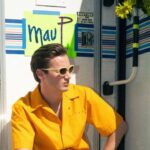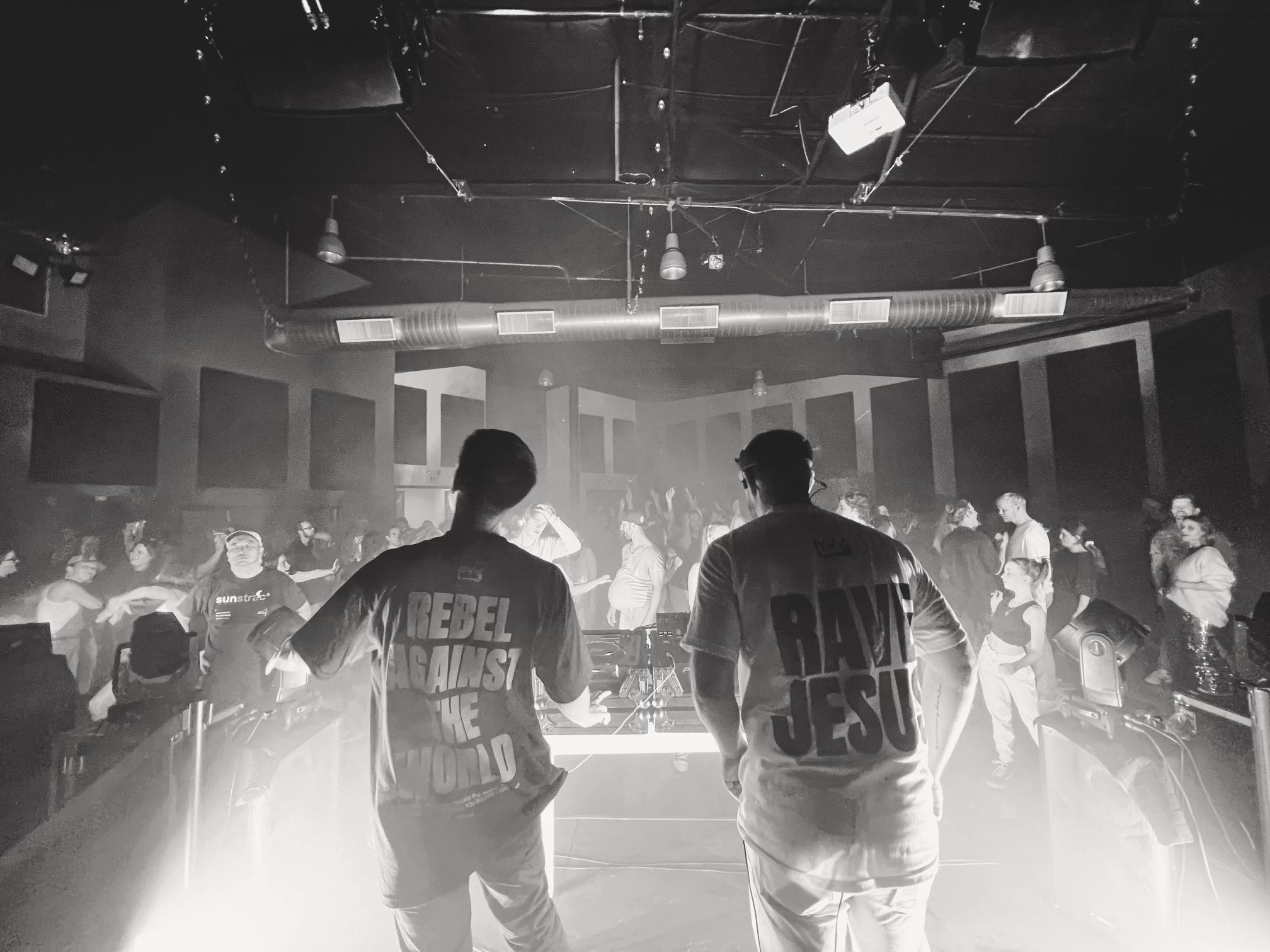WARNING: The following article contains spoilers for Dragon Ball Super Chapter 77, "Bardock, Father of Goku," by Akira Toriyama, Toyotarou, Caleb Cook and Brandon Bovia, available now in English through Viz Media.
If there’s one thing Dragon Ball is definitively about – beyond buff dudes from space punching each other really, really hard – it’s a firm rejection that our fates are written for us at birth. Beings such as Piccolo and Majin Buu, conjured via magic for the express purpose of inflicting evil, eventually discover empathy and compassion and get to join the main cast as heroes. Vegeta remained insistent in embracing his birthright as the bloodthirsty Prince of the Saiyans until the connections he made on Earth finally persuaded him that he could be so much more than that.
The Buu Saga is infamous among fans for refusing to pay off the Cell Saga's setup of Gohan as Goku’s successor, but even this is in keeping with the series’ rejection of destiny. Just because Gohan was born with the potential to be the strongest character in the series doesn’t mean he should have to use that power to become a carbon copy of his dad. It’s clear that series creator Akira Toriyama sees Gohan willingly embracing the scholarly lifestyle and settling down with his family to be a happy ending for the character.
And then, of course, there’s Goku, sent to Earth as its destroyer only to wind up with amnesia through a freak accident and forgetting his original purpose. Many have pointed out parallels between Goku and Superman’s origin stories, but the key difference was always that Goku was never meant to become Earth’s mightiest protector. It was only through random happenstance that his original fate was averted, and he would grow up to become the hero Dragon Ball fans know and love today.
Despite being a lower class Saiyan sent to a backwater planet, through hard work and determination Goku triumphs against pure-blooded nobles and tyrannical space emperors. There’s no destiny mandating Goku’s life, he simply chooses to train to better himself, meet strong opponents, and protect his loved ones. In a media landscape dominated by chosen ones, Dragon Ball stands out with a lead hero who is refreshingly no more or less himself.
So it’s a pity, then, that recent developments in Dragon Ball Super seek to undermine this. While nothing in the manga suggests it’s about to reveal Goku to have secretly been the "chosen one" this entire time, the most recent chapter does, unfortunately, compromise the notion that Goku’s kindhearted nature was the product of his upbringing with Grandpa Gohan -- a core tenet of his character since the beginning.
Dragon Ball Super Chapter 77, the latest chapter of the Granolah the Survivor Saga, reveals that the titular antagonist’s hatred for the Saiyans who leveled his home planet was misplaced because of a Saiyan by the name of Bardock who saved both Granolah and his mother.
For the uninitiated, Bardock is the father of Goku, and as depicted in Dragon Ball Z, a brute and a mass murderer. As the aptly titled “Bardock: The Father of Goku” special he originates from depicts, the only thing Bardock has in common with his son is his appearance -- otherwise, the two couldn’t be any more different. Bardock slaughters entire civilizations in the name of Frieza’s empire, only objecting when events imply that Frieza’s next victims might be the Saiyans themselves.
Even when spurred by the demise of his comrades, Bardock dies a pitiful death in a meaningless stand against Frieza. The special remains one of Dragon Ball’s finest hours, acting as a cautionary tale of the man Goku could have grown up to be, while Bardock himself serves as one of the series’ richest, most tragic figures. The Granolah Saga choosing to depict Bardock as a hero does nothing but blunt the impact of the special.
The Granolah Saga isn’t the first time a modern Dragon Ball project has tampered with the character of Bardock in this way. 2011’s “Episode of Bardock” showed an alternate history in which Frieza’s blast sends Bardock back in time. Through an encounter with Frieza’s ancestor, Bardock becomes the legendary Super Saiyan, willfully protecting a tribe of natives to the Planet Plant and even forming a bond with one of the tribe’s children. It’s an absurd character turn for a man who, mere days ago in-universe, was happily razing cities to the ground, no doubt full of children just like the one he befriends in the special.
Of course, Dragon Ball is no stranger to downplaying the severity of mass murder. After all, this is the series in which the impartial god of the afterlife would deem Vegeta a good guy mere days after the Saiyan prince slaughtered an arena full of civilians. But at the very least, the Buu saga grapples with Vegeta's inner conflict and subsequent redemption directly, culminating in Dragon Ball Z's most memorable character arc. "Episode of Bardock", on the other hand, has no interest in its titular character other than as a vehicle to sell Dragon Ball Heroes cards.
Then there’s 2014’s infamous chapter “Dragon Ball Minus”, Akira Toriyama’s own take on the character. As the series' creator, Toriyama has every right to take elements original to the anime and change them when incorporating them into the main story, and he would do so to great effect in 2018’s Dragon Ball Super: Broly.
Unfortunately, “Dragon Ball Minus” is ancillary fluff that only further softens Bardock, turning him into a loving husband and father who sends Goku to Earth in order to protect him. “Minus” frames this as a noble act, despite Bardock still being a murderous mercenary in the service of an intergalactic real estate speculator, who only cares about his boss’s misdeeds when it inconveniences him. It’s a chapter that turns Goku’s backstory from being superficially similar to Superman’s to a direct parallel, undermining the Saiyan Saga's key twist that Earth’s hero very narrowly avoided being its destructor.
With these depictions in mind, the Granolah Saga's use of the character might not seem so egregious. After all, it wouldn’t be the first time modern Dragon Ball has depicted Bardock as a noble figure wiling to save civilians. To the flashback's credit, Bardock's depiction here is more complicated than either "Minus" or "Episode of", with the character torn by his acts of compassion. Seeing him grapple with his newfound concept of empathy is a more compelling dramatic hook than anything either of modern Dragon Ball's other two spotlights on the character would provide.
What makes this flashback disappointingly regressive is how Bardock's characterization here impacts Goku, with the main takeaway of the flashback being that Goku's compassionate nature is hereditary. As Vegeta puts it in the chapter, "your soft-hearted nature clearly runs in the family".
It's a notion that flies in the face of everything Dragon Ball has been about up to this point, and it renders Grandpa Gohan -- the man who actually raised Goku and made him the man he is today -- less important. The reveal also completely undermines Goku's character conflict in the Saiyan and Frieza Sagas.
During his battle against the Saiyans, Goku was forced to reckon with the monster he could have grown up to become, and in the battle against Frieza, he would choose to willingly accept his heritage, warts, and all. These developments have no weight if there was never any risk of Goku turning evil, or if he was always going to turn out fine because he'd inherited his benevolent nature from his father, as this chapter suggests.
The flashback is disappointing not just in how it impacts prior Sagas, but how it blunts the dramatic potential of its own. It was clear from the outset that Granolah’s revenge was misplaced; Granolah finally coming to that realization because one Saiyan among the thousands who slaughtered his people wasn't so bad after all is far too easy a resolution to that particular plotline. Goku and Vegeta have very little agency in Granolah's redemption, with the Bardock flashback relayed as dry exposition by Granolah's mentor Monaito, a tale the old Namekian could have told Granolah at any time prior to this.
It's a lazy means of resolving what was up to this point Dragon Ball Super's most captivating character conflict, and it makes the story less engaging moving forward. If the protagonists aren't going to have an effect on the story at hand, what reason does the audience have to care about its conclusion?
The Granolah Saga's take on Bardock is frustrating for many reasons, but perhaps most of all is because Dragon Ball Super has otherwise excelled at breathing new life into older, more neglected characters. Future Trunks, Frieza and Android 17 are all much richer for the roles they play in Super, and Toriyama's take on Broly is a near-universal improvement on his Z counterpart. It's just a shame that Bardock, one of the most fascinating characters in the entire franchise, hasn't been afforded the same privilege.
There's nothing wrong with making the character less evil if it's the basis of an interesting story, but so far Toriyama has yet to tell one with him. Here's hoping next time the character comes up, it's in service of something more compelling.
The Dragon Ball Super manga is available on the official VIZ site, with the most recent three chapters available to read for free. New chapters release monthly.
About The Author

